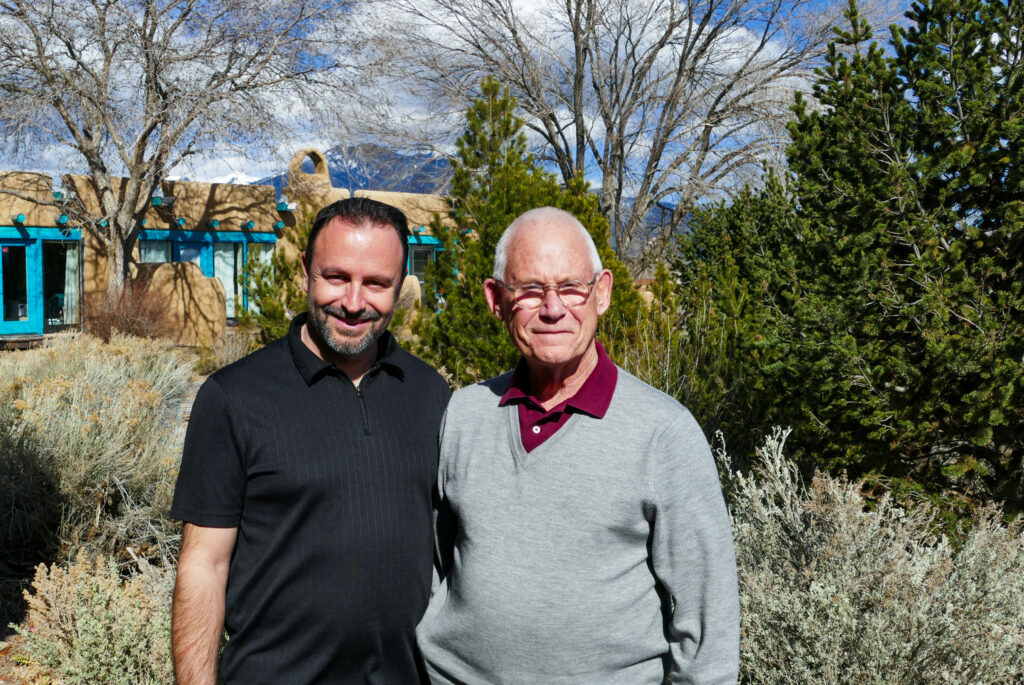Medical Detox from Opiates – How Vista Taos Renewal Center Can Help
Learn more about the benefits of medical detox from opiates. Discover treatment centers near you.

What is Medical Detox from Opiates?
Medical detox from opiates is a supervised and medically managed process. It involves a combination of medications that can help reduce cravings and reduce withdrawal symptoms.
The process involves removing opiates from the body. It is the first step in treating opiate addiction and dependence.
What Happens During Detox?
During opiate detox, individuals undergo a structured withdrawal process under the care of healthcare professionals.
The main goal of medical detoxification is to alleviate the physical and psychological symptoms associated with opiate withdrawal. It ensures the safety and well-being of the individual.
Medical detox is necessary when an individual has become dependent on opiates.
Definition and Examples of Opiates
Opiates are a class of drugs derived from the poppy plant. It is a synthetically made opium that helps to mimic the effects of opium. They are primarily used to relieve pain and cause feelings of euphoria.
Opiates bind to specific receptors in the brain and other parts of the body, leading to a range of effects. Although opiates are best at managing pain, they can be highly addictive.1
Below are some examples of opiates.
Morphine
Morphine is a powerful painkiller used in hospitals and other medical settings for severe pain.
Morphine changes how your brain and body respond to pain signals, reducing the intensity of pain experienced.
Codeine
Codeine is a mild painkiller often used in cough syrups and to treat moderate pain.
Fentanyl
This is a synthetic opioid that is many times stronger than morphine. It is often used for severe pain and is also found illicitly as a street drug.
Oxycodone
Oxycodone is a semi-synthetic opioid used to treat moderate to severe pain. It is a prescription also sold under various brands, including OxyContin and Percocet.
Hydrocodone
This is a semi-synthetic opioid often used to treat moderate pain. It is sold under various brand names, including Vicodin and Norco.
Heroin
This is an illegal opioid that is highly addictive and has no medical use. It is typically used recreationally by injection, smoking, or snorting.
Tramadol
Tramadol is a synthetic opioid used to treat moderate to severe pain. Some of its brand names include Ultram and ConZip.
How Opiates Work in the Body
Opiates, also known as opioids, bind to specific receptors in the brain.
They also bind to other parts of the body called opioid receptors. These receptors are in brain areas responsible for pain and other functions.
What Happens When Opiates Bind to Receptors?
When an opiate bind to an opioid receptor, it triggers various chemical reactions that can produce multiple effects.
Some of these effects include:
- Pain relief
- Sedation
- Feelings of euphoria
Opiates can also slow down breathing and heart rate and cause constipation.
Factors that Impact the Effects of Opiates
The effects of opiates on the body depend on several factors. Some of these factors include:
- Type of substance
- Dose of the drug
- Individual tolerance
- Whether the medication is prescribed or misused
With repeated use, the body can become tolerant to the effects of opiates. This means that the individual requires higher doses to achieve the same pain relief or euphoria level.
Prolonged Use and Physical Dependence
Prolonged use can also lead to physical dependence. This means that the body has adapted to the presence of the drug and requires it to function normally.
In 2020, over 69,000 individuals overdosed on opioids.2
Side Effects of Opiate Abuse
Opiates can also have significant side effects and risks when misused. Some of these risks include:
- Addiction
- Overdose
- Respiratory depression constipation
- Increased risk of infections from injecting opioids
It is vital to use opiates only as prescribed by a healthcare professional. Be aware of the potential risks and side effects of opiate use.
What is Detox?
What Does Detox Do?
The detox process aims to help individuals safely withdraw from a substance while minimizing the potential health risks associated with withdrawal.
It rids the body of toxins accumulated from poor diet, environmental pollutants, and other unhealthy habits.
Since 2002, healthcare professionals have prescribed drugs during medically assisted treatment to treat addiction during detox.3
Important Note About Detox
It is vital to note that detoxification alone is insufficient for long-term addiction recovery. Once the individual completes detox, they must engage in comprehensive addiction treatment programs.
These treatment programs may include therapy, counseling, support groups, and other interventions.
Goals of Detox Programs
The goals of the detox process vary depending on the person’s needs and the type of substance they are withdrawing from.
Below are some of the common goals of medical detox from opiates and other substances.
Removing the Substance from the Body
The primary goal of detox is to help the body eliminate the substance of abuse and any related toxins from the body.
This process can help to prevent further damage to the individual’s health and prepare them for further treatment.
Managing Withdrawal Symptoms
Many individuals experience withdrawal symptoms when they stop using a substance they have become dependent on.
Detox programs aim to manage these symptoms by providing:
- Medication management
- Hydration support
- Other supportive measures
Reducing the Risk of Complications
Some withdrawal symptoms can be severe and even life-threatening. Detox programs aim to minimize the risk of complications by providing medical supervision and monitoring.
Providing a Safe and Supportive Environment
Detox programs aim to provide a safe and supportive environment for individuals undergoing recovery.
Vista Taos Rehabilitation Center provides a safe environment that enables individuals to focus on their recovery. Here, the individuals receive necessary care.
Types of Detox Protocols
Detox protocols vary widely in focus, intensity, and duration of substance use. There are various detox protocols available at medical facilities such as Vista Taos Rehabilitation Center.
Below are some popular detox protocols.
Juice Cleanse
This detox protocol involves drinking freshly made juices and water for one to several days. By consuming only juice, you’re giving your body a break from digestion and allowing it to focus on cleansing.
Whole Foods Detox
This involves eating a diet consisting of only whole, unprocessed foods. These foods include:
- Fruits
- Vegetables
- Legumes
- Nuts
- Seeds
This type of detox helps nourishes the body while giving it time to rest and cleanse itself.
Fasting Detox
This detox protocol involves abstaining from food for a while, ranging from one to three days. Fasting can help your body reset and rid itself of toxins while allowing it to heal itself.
Herbal Detox
Some detox protocols involve using herbs to help cleanse the body and eliminate toxins. Herbs can help support the body’s natural detoxification process. It also helps to provide additional nutrients.
Supplement-Based Detox
This type of detox protocol focuses on taking specific supplements while avoiding foods or drinks that could add toxic substances to your body.
These supplements provide the body with essential nutrients while also allowing it to focus on cleansing itself.
Symptoms of Opiate Detox
Opiate detox can cause a range of symptoms as the body adjusts to the absence of the drug. The specific symptoms experienced during opiate detox can vary depending on various factors.
It depends on the individual’s level of dependence, the length of time they have been using opiates, and other factors.
Physical Symptoms of Medical Detox from Opiates
Some physical symptoms of medical detox from opiates include:
- Nausea and vomiting
- Diarrhea
- Sweating
- Muscle aches and cramps
- Tremors
- Rapid heartbeat
- Changes in blood pressure
- Fever or chills
- Insomnia
- Headaches
Psychological Symptoms of Medical Detox from Opiates
Some of the psychological symptoms of opiate detox include:
- Anxiety
- Depression
- Irritability
- Restlessness
- Difficulty concentrating
- Cravings for the drug
How Can a Medical Detox from Opiates Help?
Vista Taos is a medical center that offers medical detox from opiates in various ways.
The following are some of the ways medical detox from opiates helps improve your quality of life:
Monitoring and Support
During medical detox from opiates, there are available healthcare professionals.
These professionals help individuals manage their withdrawal symptoms and provide support and counseling as needed.
This can help prevent complications and ensure that individuals are safe and comfortable during detox.
Management of Co-Occurring Conditions
Many individuals with opiate addiction also have co-occurring mental health that can complicate detox.
Medical detox from opiates can provide specialized care for individuals with these conditions. It helps them to manage their symptoms and prevent relapse.
Preparation for Further Treatment
Medical detox is often the first step in addiction treatment. It can help individuals prepare for further treatment and aftercare.
By managing withdrawal symptoms and providing support, medical detox from opiates can help individuals begin their recovery journey. It sets the stage for ongoing healing and growth.
Benefits of a Medical Detox for Opiate Addiction
The following are some of the benefits of a medical detox from opiates.
Reduced Risk of Relapse
Medical detox from opiates can help reduce the risk of a relapse. It allows patients to escape the people and places that aid their addiction. Medical detox gives them time and space to focus on recovery.
Improved Physical Health
Opiate addiction often leads to various physical ailments, ranging from malnutrition to deteriorating organs.
Medical detox provides medical treatments and nutritional counseling, which can help improve overall physical health.
Faster Recovery
It is important to have assistance from a qualified medical professional during the withdrawal process.
This helps reduce the time needed for the body to adjust and heal during withdrawal, leading to a faster recovery.
What Should I Expect During a Medical Detox from Opiates?
The following are some of the aspects you should expect during a medical detox from opiates.
Assessment and Evaluation
At the start of your medical detox from opiates, you will undergo a comprehensive assessment to determine the best course of treatment for your unique needs.
This may involve:
- Physical and psychological evaluations
- Lab tests
- Interviews with healthcare professionals
Medication-Assisted Treatment (MAT)
Depending on your level of dependence and withdrawal symptoms, you may receive MAT to manage your symptoms and reduce cravings for opiates.
Medications such as methadone, buprenorphine, and naltrexone can effectively reduce withdrawal symptoms.4
It will help you stay comfortable during detox.
Individual and Group Therapy
As part of your medical detox program, you may receive individual or group therapy to address the underlying causes of your addiction. It will help you develop coping skills for long-term recovery.
What is the Best Way to Recover after a Medical Detox from Opiates?
The best way to recover after a medical detox from opiates is to receive ongoing and appropriate treatment. This may include cognitive-behavioral therapy or other therapies that can help identify and address the underlying causes of addiction.
Other lifestyle changes, such as regular physical activity and healthy eating habits, can also aid recovery. It is also best to avoid certain triggers leading to relapse to consider long-term treatment plans for further support.
You can also pursue an aftercare treatment after medical detox from opiates to aid long-term recovery.

What Does Vista Taos Offer?
Vista Taos offers comprehensive treatment services or programs to aid opiate addiction. We offer individualized treatment in a structured and safe environment.
We also provide support from detoxification to primary treatment to aftercare. They ensure their patients can integrate safely into life after treatment.
Programs at Vista Taos
Some of the programs offered at Vista Taos to support opiate addiction treatment and recovery include:
- Inpatient treatment
- Medical detox
- Alternative therapies
- Dual diagnosis treatment
- Aftercare
Detox from Opiates at Vista Taos Rehabilitation Center
Contact Vista Taos Today
At Vista Taos, we believe in a comprehensive and individualized treatment approach. We provide our patients with 24/7 medical supervision to ensure safety.
You can contact us today via our telephone at (575)613-7917 for information about medical detox from opiates.




